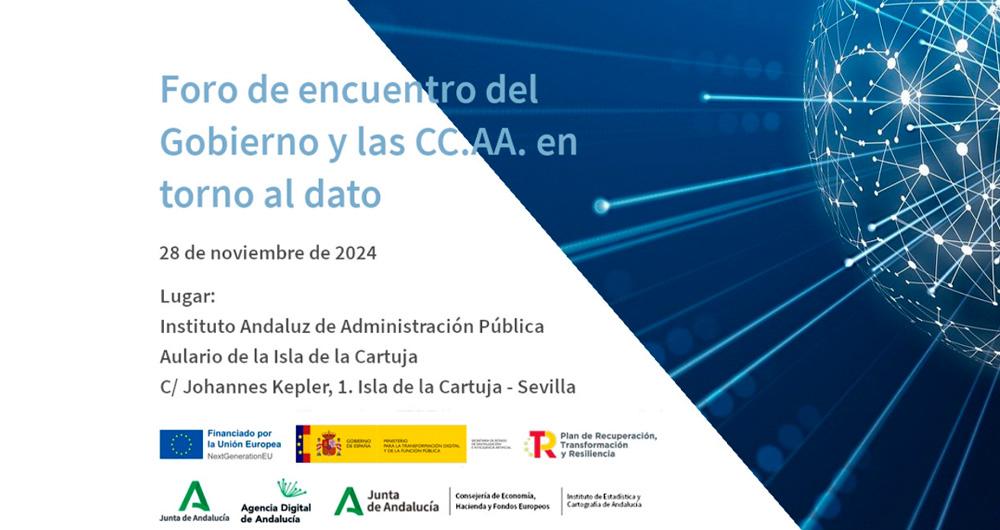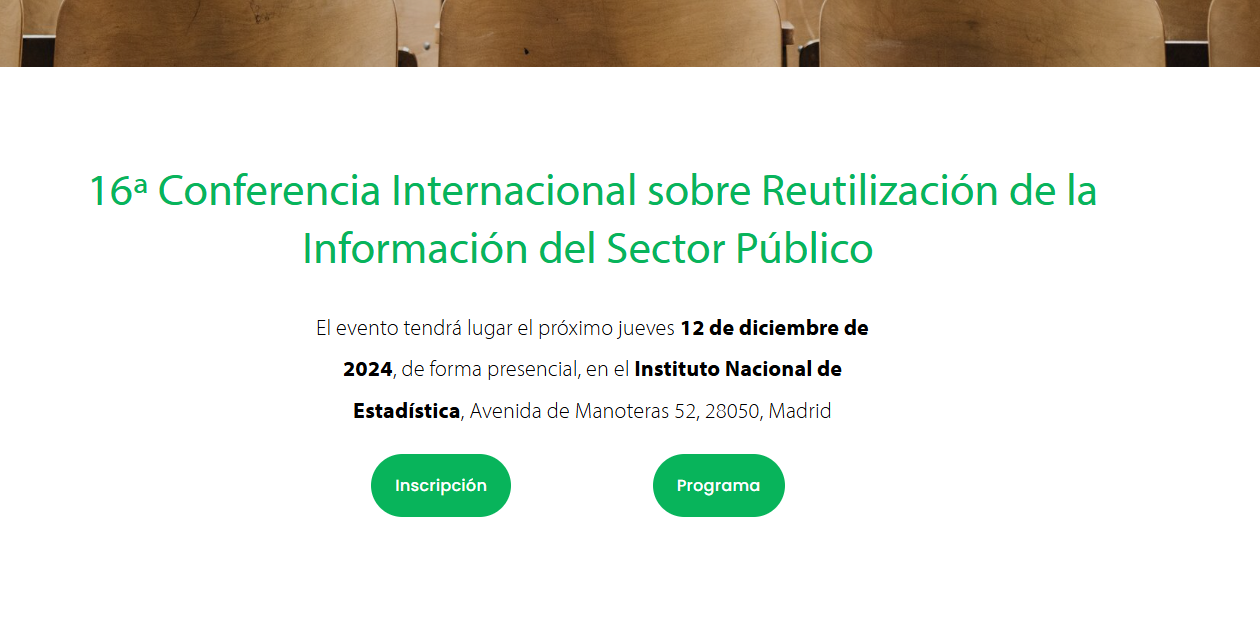
On 28 November, the 2nd Forum for the Government and the Autonomous Communities to meet around data was held in Seville, organised by the State Secretariat for Digitalisation and Artificial Intelligence (SEDIA), in collaboration with the Andalusian Institute of Statistics and Cartography (IECA) and the Digital Agency of Andalusia (ADA). Almost all the autonomous communities participated, reflecting their commitment to data as a strategic driver of digital transformation.
The programme addressed key issues, such as the lessons learned in the implementation of data governance, the impact of its ethical use, and the potential of public-private collaboration in the deployment of sectoral data spaces, with emphasis on the Plan for the Promotion of Sectoral Data Spaces recently presented by the Ministry for Digital Transformation on 21 November.
Here is a summary of the key points of the meeting.
A space to exchange experiences, success stories and lessons learned.
The event brought together more than 70 experts from units of the General State Administration and 15 autonomous communities and the Autonomous City of Melilla, which are active in the use and management of data in their organisations. El objetivo era poner en común las experiencias en este ámbito y compartir los casos de éxito y los aprendizajes derivados de la implantación de iniciativas de gobierno del dato, promoviendo la colaboración entre administraciones para mejorar la competitividad y la eficiencia digital futura.
The forum was opened by the Regional Minister of Presidency, Interior, Social Dialogue and Administrative Simplification of the Andalusian Regional Government, and the Director General of Data of the Ministry for Digital Transformation and Public Administration, and was closed by the Director of IECA.
The day was structured around three round tables with 15 speakers. The attendees were also able to answer various questions related to the subject matter of each of these roundtables, in order to ascertain their perceptions in this regard. This format facilitated a fruitful and enriching exchange of ideas that allowed attendees to explore key issues.
- Table 1 "Experiences of implementing Data Governance: Lessons learnt. The first round table focused on different experiences in data governance. The speakers shared the challenges faced and the practical lessons learned, with the aim of serving as an example and point of reflection for similar initiatives that participants might undertake in the future. The importance of support at the highest level and the use of existing frameworks, such as UNE specifications or the DAMA methodology, was stressed. The need to focus not only on technology, but also to respond to cultural and organisational changes, and to establish processes and structures that will last over time was also emphasised.
- Table 2 "Data with purpose: Success stories of ethical and reliable use of data". The second roundtable focused on presenting concrete results obtained through the ethical and reliable use of data. The speakers shared their backgrounds and achievements, illustrating the wide possibilities that a well governed and managed data can generate in terms of citizen service and improvement of public administration. The work to be done on the quantity and quality of datawas highlighted, without losing focus on the future goal, which is to solve today's problems through sustainable projects.
- Table 3 "Data spaces from the perspective of public-private collaboration and the enhancement of public data". The third and final roundtable explored the paradigm of data spaces. Special emphasis was placed on public-private partnerships and how to enhance the value of public data. A highlight of this session was the presentation by the Directorate General for Data of the Plan for the Promotion of Sectoral Data Spaces. This plan seeks to deploy data spaces across the different productive sectors, underlining the fundamental value that quality public data can have in their effective implementation.
Overall, these roundtables not only provided a platform for the exchange of knowledge and experiences, but also laid the groundwork for future collaborations and innovative projects in the field of data management and governance in the Spanish public administration.
Attendees were very appreciative of the wide variety of roles involved, giving different views on something as complex as data governance, which includes many different approaches and competencies. The general perception is that shared experiences help others to try to circumvent the barriers that others have previously had to overcome and to reach the final goal faster, which is to provide better service and implement better public policies for citizens through a data-driven government.
Conclusions of the Forum
Some of the conclusions reached were:
- It is necessary to focus on data quality. Without quality data, well governed and managed, it will be difficult to achieve valuable solutions, for example in the field of artificial intelligence.
- Invest in data governance by ensuring sustainable projects. Data governance is not just about technology, but about business and services. It requires considerable effort on the part of organisations to create data that reflect reality and are truly useful for decision-making, breaking down silos and implementing citizen-oriented services. To this end, it is recommended to build on existing conceptual frameworks, oriented towards processes and organisational structures that are sustainable over time.
- The Autonomous Communities can help the deployment of the Plan for the Promotion of Data Spaces from a public-private partnership perspective and benefit from its actions.
- We need to influence the data culture in organisations. The objective is to incorporate data governance into the different business areas, supporting organisational objectives, ensuring that the data culture permeates the organisation and is perceived as something transversal that contributes value to the different sectors as well as to the administration and society as a whole.
Upcoming performances
After the success of the first edition, held in Navarre in 2023, the forum has been consolidated as a reference space for the exchange of experiences and good practices in data management, essential for those seeking to lead the future of data management in public administrations.
Theday concluded with a proposal for continuity, highlighting the need to create a community of knowledge exchange between editions. Furthermore, the Principality of Asturias has applied to host the third edition of the forum, to be held in 2025, which demonstrates the growing interest in further consolidating this space for inter-institutional cooperation on data.


